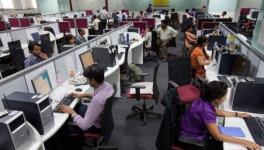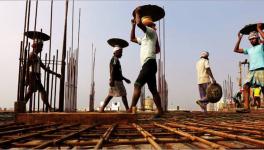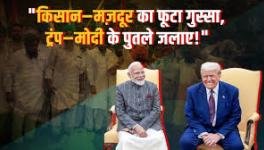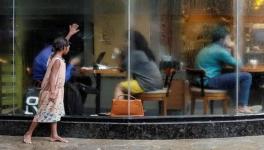Union Budget 2011: Detrimental to the Aam Admi
Continuing with what is widely perceived as an iniquitous agenda that characterised the last budget (of 2010-11) as well, the Finance Minister has presented a budget for 2011-12, which provides direct tax concessions to the affluent classes while increasing indirect taxes, which will be passed on to all sections of the population. This is a classic case of regressive taxation. By doing this it fails to address the back-breaking inflation problem that the people have been enduring over the last year.
An Overview of the Budget
During these times of high inflation – especially in food and fuel items – one would have expected the finance minister to provide relief; instead, the budget seems to add even further to the problem. The following table (Table 1) gives an overview of this year's budget in comparison to the earlier budgets. It is clear that total expenditure has gone down in real terms, with both plan and non-plan expenditure getting further squeezed. This has happened because the fiscal deficit has come down significantly even as tax revenues have not increased by much.
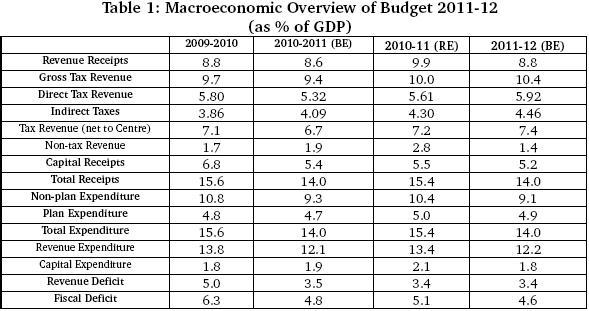
Key features of this budget can be summarised as:
1. A Rs. 20000 crore cut in major subsidies for 2011-12 (Budget Estimates) on fertiliser, fuel and food, from what was spent in 2010-11 (Revised Estimates). Furthermore, there has been a cut in food subsidy by Rs. 27 crore which clearly exposes the Government's lack of willingness to enact a meaningful food security legislation.
2. The Budget has provided relief of Rs. 11500 crore in direct taxes, while proposing to mobilise an additional Rs. 11300 crore through indirect taxes, which will inevitably be passed on to the consumers. The tax-GDP ratio, which had reached almost 12% in 2007-08 has declined since then to around 10% in the current Budget.
3. The announcement of impending legislations directed at liberalizing the sensitive financial sectors like insurance, banking and pension funds is meant to appease foreign finance capital. Further liberalization of rules for Indian Mutual Funds accessing foreign investors would also facilitate the flow of speculative finance into the economy.
Inflation: Adding Fuel to Fire
There are many reasons for the spiralling inflation. First, the volatility in the supply of food grains both due to limited production and illegal hoarding leads to increasing inflation. Second, deregulation of fuel prices leads to cost-push inflation because of the increase in production and transportation costs.
Let us see, what this budget proposes vis-a-vis these issues. First, this government has been giving a convenient logic of the mismatch between growing consumer demand while the truth is that per capita foodgrains availability in India has actually fallen in recent times. Second, when there is an accelerating global fuel prices, deregulation of fuel prices will pass the burden on to the consumers. The least that was expected was a decrease in the indirect taxes on fuel and fuel products. On the contrary, the Finance Minister's stubborn refusal to reduce excise and customs duties and obduracy in moving away from the ad-valorem duty structure on petro products coupled with the cut on fuel subsidy by Rs. 15000 crore indicates a massive increase in fuel prices in the days to come.
Expenditure Vs Receipts
The overarching agenda of this budget is to revert back to the roadmap of 'fiscal conservatism'. While the world economy is still trying to recover from the global crisis, the path of bringing down the fiscal deficit is going to be detrimental for the future of the economy. The budget proposes to bring down the fiscal deficit from 5.5% (2010-11 BE) to 4.6% (2011-12 BE). Even if one accepts the argument of decreasing fiscal deficit, despite its poor logic, the way how it is achieved is pivotally problematic. It could decrease through either an increase in the taxes or decreasing the fiscal expenditure or a combination of both. Despite having the same effect on the fiscal deficit, the second route points to a built-in anti-people bias that has characterised the policy makers.
Moreover, as noted above, if the increase in overall tax revenue is achieved through an increase in indirect taxes while providing relief to rich corporates, it will be an added burden on the common people of our country because indirect taxes are passed on to all the people through increase in prices.
Table 1 also gives an overview of the different heads under which the budget allocates its overall expenditure and the breakup of tax revenue. With resource mobilisation taking a back seat, Plan Expenditure in 2011-12 in real terms (as % of GDP) will decrease from what was spent last year. The Budget Support for the Central Plan in 2011-12 has increased by only 12% over 2010-11, while nominal GDP has increased by 14%. Such squeeze in real expenditure marks all the major developmental heads.
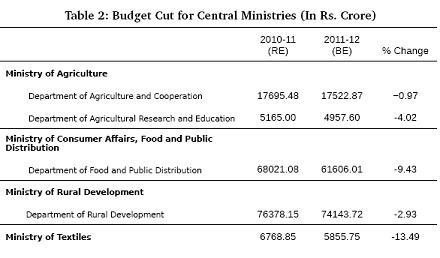
In fact, the total allocation for several ministries has been cut in nominal terms, compared to what was spent last year (Table 2). The flagship schemes of the social sector have been neglected in the budget. The allocation for NREGS has fallen by Rs. 100 crore, despite a claimed increase in the wages. The provisions for Integrated Child Development Scheme (ICDS) are far below the estimates for full universalization as directed by the Supreme Court. Agricultural growth has been below 3% in the first four years of the Eleventh Five Year Plan, despite a target of 4%. It is shocking that the total allocation for the Agriculture Ministry has been cut in this backdrop. The allocations for the welfare of women, minorities, dalits and tribals are thoroughly inadequate.
Conclusion
Overall, Budget 2011-12 is a budget that seeks to favour the corporate interests while adding to the misery of the working people of our country. Far from a government of the aam admi, this budget has shown the true character of being a government for the khas admi while pursuing the neoliberal agenda.
Get the latest reports & analysis with people's perspective on Protests, movements & deep analytical videos, discussions of the current affairs in your Telegram app. Subscribe to NewsClick's Telegram channel & get Real-Time updates on stories, as they get published on our website.









